These days, it’s essential to be as comprehensive as possible when approaching a digital marketing strategy. Every business wants to reach as wide a range of consumers as possible. That means keeping up with the latest trends and understanding when your business might be able to capitalize on them. We’ve seen it a hundred times – businesses routinely reference memes and pop culture moments and become active on new mediums and platforms. Think of how inconceivable it is to start a business and not be active on Facebook.
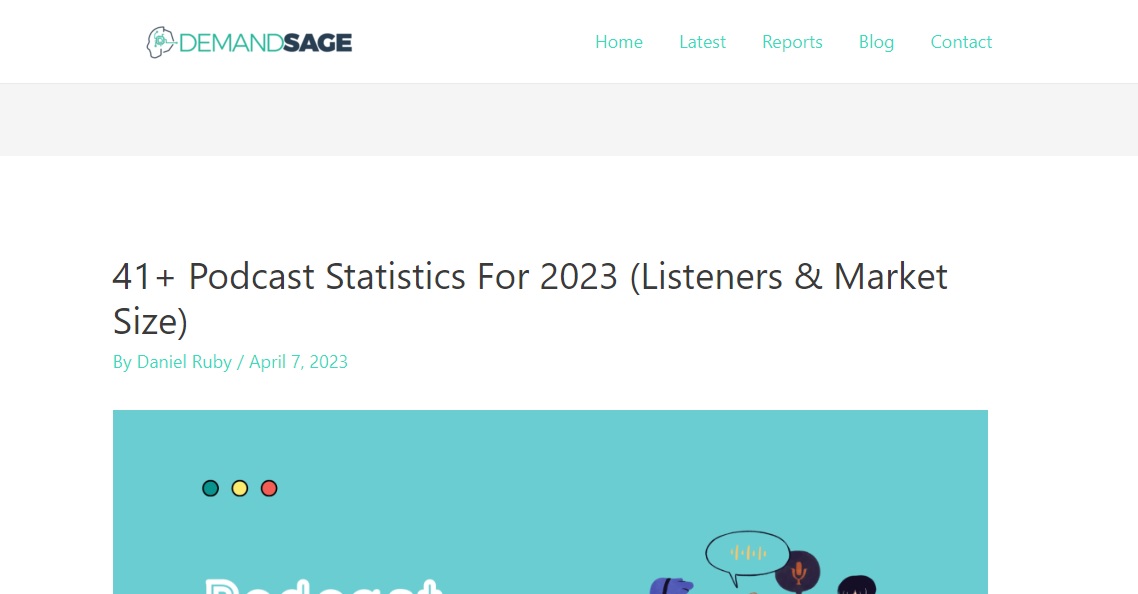
Podcasts have grown in popularity for the last decade and show no signs of slowing down. It’s predicted that by 2024, there will be over 500 million podcast listeners globally. So, how can you get your business involved and take advantage of those millions of listeners? Well, this guide will help to set you on the right path.
Why Do People Listen to Podcasts?
Before you get into podcasting, you should understand what the appeal is to begin with. Many young people aren’t listening to the radio anymore but are listening to podcasts. Many things can explain this shift in attention. For one thing, you can listen to podcasts anytime, anywhere you have your phone and a pair of earbuds. Plus, podcasts can be downloaded and saved for later. Sure, you can listen live if you want that instant access, but the versatility of podcasts is a big draw.
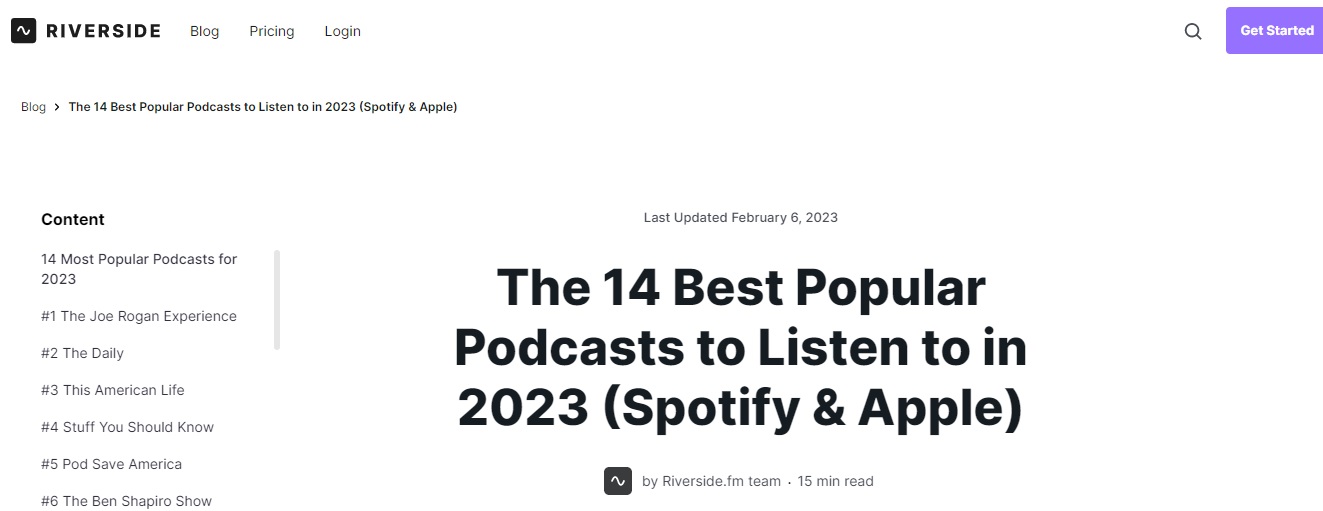
What comes to mind when you think of popular podcasts? The Joe Rogan Experience, Call Her Daddy, My Favorite Murder – these pop into many people’s heads when you ask them to think of a podcast. However, looking at the most popular podcasts, you’ll find a growing demographic tuning into podcasts for information, news, and unique perspectives. It’s true that many (and maybe most) people listen to podcasts for entertainment, but that might change in the next few years.
With growing audiences for serious or niche topics, your business could get in on the ground floor and reach an entirely new audience. Look at podcasts that cover subjects relevant to your industry to get some inspiration about what niche your podcast should exist in. While you might think you should exclusively cover serious topics that relate directly to your business’s products or services, you’d be surprised what can work.

Well-Placed Ads, Product Placement, or Branded Podcasts?
Starting your own podcast for your business isn’t the only way that you can take advantage of this relatively new phenomenon. Another route you can take is to indulge in some product placement. According to one statistic, over 60% of listeners reported looking into a product after hearing it advertised on a podcast. This makes sense when you consider how individualized so much content has become on the internet.
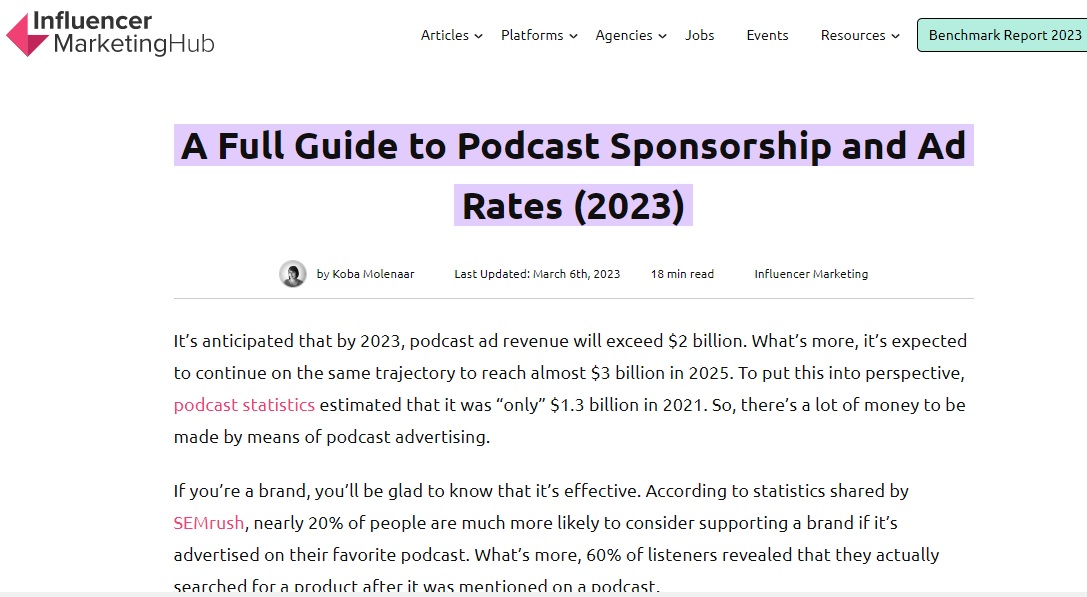
More and more people are finding niche creators who don’t have large followings – a great example of this is the rise of content creation on Twitch, YouTube, TikTok, and other social media sites. Many small creators consider a brand deal significant for them and their brand. For their cult followings, those brand deals are opportunities to help ensure those creators can continue making content.
Depending on the size of your company and the type of consumers your brand attracts, you might need more time to rely on an audience supporting your podcast strictly out of the love of your brand. The industry you fit within will also play a significant role. If your podcast isn’t built around developing a cult of personality, you might want to consider advertising on other people’s podcasts rather than setting up a branded podcast for your business. A well-placed advertisement could do quite a lot if it reaches the right audience – but how do you determine what that audience is?
Analyzing Key Metrics
An essential step in deciding what kind of audience your potential podcast will reach is to analyze important metrics. Most sites hosting podcasts have information about the number of listeners a podcast commands. You might also find out what countries people are from, when they’re listening, how long they’re listening for, and more. This information won’t only clue you in on what kind of podcasts might be ideal for you to consider advertising in, but they can also inform you what kind of podcasts you should be emulating. If you own a company specializing in painting luxury homes in the northeast of the United States, you won’t want to advertise in a podcast that mainly appeals to tweens in Chile.
Not every site or hosting platform will tell you all the information you want to know upfront. Sometimes, you have to contact support directly to find out what kind of audience you’re reaching. This will likely be the case when trying to ascertain more specific information about listeners, including gender, age, contact info, etc. User data is highly protected and very private on a lot of sites, so don’t count on being able to find out this kind of information directly. However, there are ways that you can figure these things out on your own.
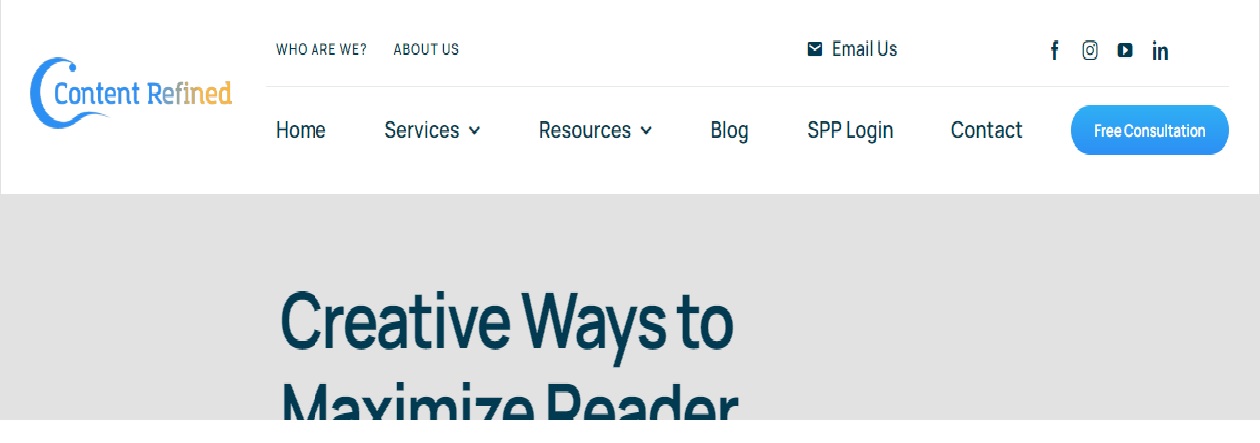
One way to discover user data indirectly is to look at who shares your content on social media. Do a little bit of digging, and you’ll be able to see who is engaging with your content. From there, you can figure out a lot about how you should market yourself, what topics you should discuss, or what podcasts you should advertise if you decide to promote your brand in another podcast instead of creating your own.

How Does Your Business Sound?
You must understand your business’s unique voice when involved in any marketing strategy that markets directly to consumers. Who is your target audience? Who are you trying to reach, and how do you want to present yourself? If your target audience is young professionals living in urban environments, you’ll want to have a different tone than a business targeting rural folks approaching old age.
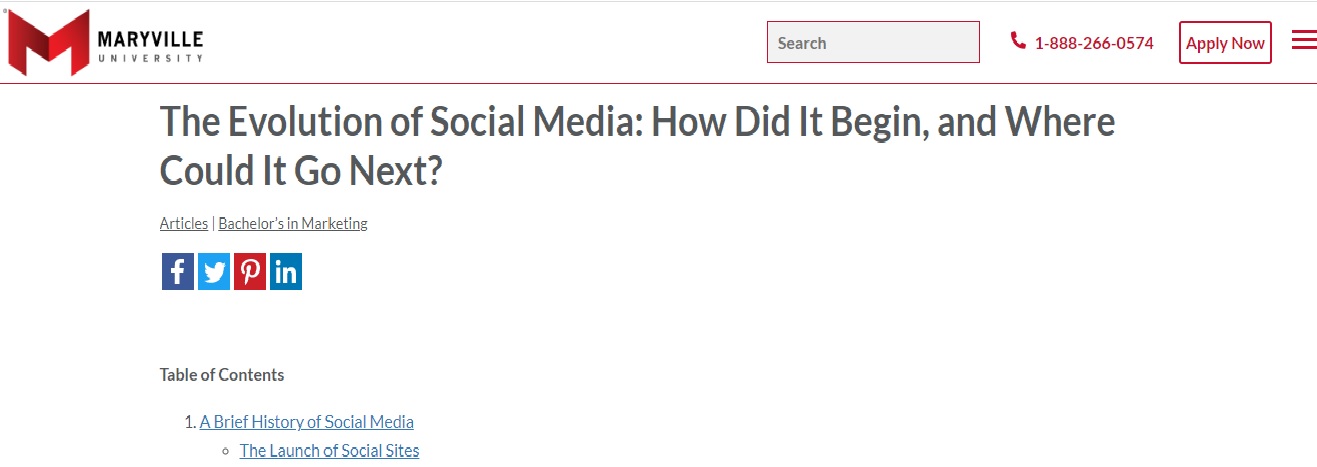
Social media marketing took a lot of work for many businesses to figure out. Anyone active on Facebook or Twitter in the early 2010s remembers how brands used to be perceived on the average social media site. Besides being bullied mercilessly, they often had meager overall engagement rates. These days, brands have figured out how to be active on social media, largely thanks to competent social media marketers and hiring age-appropriate brand representatives. For the most part, no matter who you’re catering your business to, you’ll always want to skew a little younger, as most podcast listeners are between 12 and 34.
So, what does this mean? Well, you’ll need to identify what the overall tone of your business will be. Your hosts should be charismatic, charming, and have voices that are easy to listen to. Since audiences tend to skew younger, you might consider adjusting the topics slightly to cater to them. In certain spaces, your business’s voice should match your audience’s eyes – or, in this case, ears.
How Do You Start a Branded Podcast?
Starting a podcast is attractive to many people and businesses for many reasons. After all, the concept is simple enough – allot a block of time and cover a range of subjects that may or may not be relevant to your business. Once you figure out the tone you will go with, you must figure out the basic logistical steps. This part is self-explanatory – you’ll want a recording setup using high-quality microphones to capture crisp, clear audio. You’ll want hosts that capture the spirit of your brand while remaining well-spoken and charismatic. You’ll want a clearly identified structure to your podcasts so that your audience understands what’s happening when they tune in.
If you start a branded podcast, you’ll want to go all in. While that doesn’t mean you have to go out and buy all of the most expensive audio equipment and hire professional comedians for your business, it does mean you shouldn’t just throw up some shoddy enterprise that will end up reflecting poorly on your brand. If you’re going to have a visual element to your podcast, make sure you’re recording with HD equipment. Invest in decent microphones. Ensure your episodes are concisely edited so the audio is always intelligible. Perform sound checks and securely attach lav mics if you’re using them. Find out how to do things professionally and do them to the best of your ability.
Another tip is to get the word out about your podcast as much as possible. Publish episodes frequently and on a regular schedule. Put your content on any platform you can – Spotify, Apple Podcasts, Soundcloud – any platform that you hear about, you should consider publishing your content on. There are many options out there, and not all of them will be free, but the important thing is that you reach as many ears as possible.


